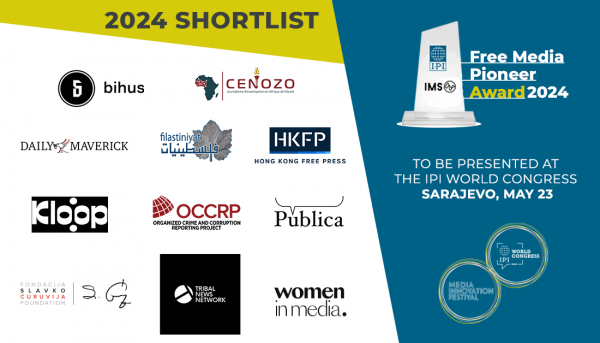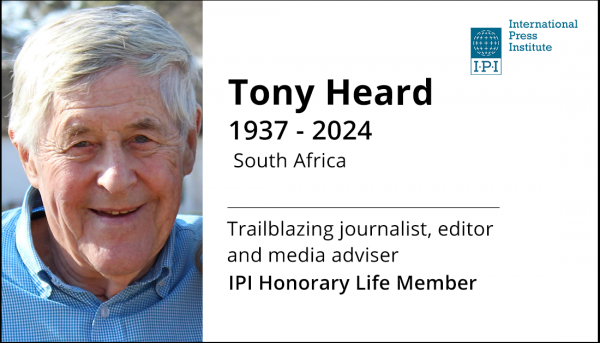As the press enters the post-Mandela era, some journalists are uneasy, concerned whether his passing will lead to the government, which over the last few years has curbed the media’s freedoms, adding more restrictions. They wonder whether, though ailing in the last few years of his life, Nelson Mandela was still able to stay the hands of the hotheads in the ruling African National Congress (ANC) who regard the press as “the opposition” and seek to further restrain its ability to publish information in the public interest. Journalists have noted that the ANC’s focus in this sphere of interest has been on the press as distinct from the broadcast media.
The press is deeply wary of an ANC proposal that Parliament set up a statutory media appeals tribunal to act as a watchdog over the press. The ANC labels the current Press Council regulatory system instituted by the print industry as “toothless” and by some of the more virulent critics as acting in favour of the newspapers in judging conduct rather than making independent judgments. The tribunal the ANC envisages would have powers to punish newspapers for misdemeanours and other ethical lapses, similar to those dealt with by the Press Council, but fines and even jail sentences have been mentioned as penalties. There are also fears that such a statutory media appeals tribunal can be abused to control the press.
The press operates under the protection of a fine Constitution – often described as the best in the world. Its adoption by the country was presided over by Mandela when he was president and illustrates his abiding support for a free and independent media. He further demonstrated this when he rejected the legal restrictions on reporting divorces when his divorce from Winnie Madikizela Mandela was heard in a Johannesburg court. He had already enunciated his views about the essential requirement for a free press in a democracy – when he opened the IPI World Congress in Cape Town in 1994 and declared, “A critical, independent and investigative press is the lifeblood of any democracy.”
When Mandela retired and suggested that he was trying to spend time with family and avoid public functions, he indicated a refusal to comment on public affairs by pointing out that he was no longer in politics. “I’m just watching from a distance and when people come to me and say, `What do we do with a situation like this?’ I say , `No, go to the people in politics’.”
That explains why his voice was silent when controversies arose about media issues and other political controversies, but many believe his mere presence may have had a restraining influence. If he did speak out privately on matters that troubled him, no hint of it leaked to the public sphere. However, whatever restraint he did exercise over those seeking to curb the media was only partially effective because since 1994 the government has introduced several pieces of legislation restraining media freedom. These range over promoting human dignity and, at the instigation of the United States, the state’s stand against terrorism. The latest legislation which causes deep concern is the Protection of State Information Bill, which has been passed by Parliament and now only awaits the signature of President Jacob Zuma to become law.
The complaints over the Protection of State Information Bill, which has been dubbed the “secrecy bill,” focus on the extensive powers given the Minister of State Security and the wide range of information that can be classified, the severe penalties faced by journalists and whistle-blowers should they be found in possession of classified information or in breach of the law in other ways, and the potential for abuse and for covering up embarrassing government conduct. There is also a serious lack of a public interest defence for publishing material that has been classified.
Against this background what does the future hold for the press in the absence of Mandela? President Zuma has spoken of modelling state governance on the values and principles propagated by Mandela. Zuma’s ability to in live up to that promise will be tested when he finally deals with the “secrecy bill.” Will he sign it into law or refer it to the Constitutional Court to test whether it complies with the Constitution? If he does sign, numerous opposition moves to get the bill before the Constitutional judges will be set in motion.
Zuma’s signature on the bill will be a strong indicator that the government will continue to explore further restrictions on the press and the public’s right to know. A further revealing pointer to the thinking of the rulers is the manner in which the government has refused to allow the public to see what is believed to be a damning report on the state’s expenditure of R206-million (about US $20-million) on Zuma’s country estate at Nkandla in Kwa-Zulu Natal. The expenditure was purportedly to ensure the security of Zuma, his wives and the extensive property. But critics believe it included substantial upgrading of the estate’s facilities far beyond the requirements of presidential security. Among the features complained of are a swimming pool, a tuck shop operated by one of his wives, a conference centre and a cattle kraal (or enclosure).
Meanwhile, several ANC leaders are reacting to the frequently satirical and pointed press censure of Zuma by baying their approval of authoritarian countries who use “insult” laws to protect their presidents against criticism, ignoring the recent decision of the continent’s Pan-African Parliament to launch a campaign against such laws.
Raymond Louw, recipient of the IPI World Press Freedom Hero award (2011), is a former editor of the anti-apartheid Rand Daily Mail and until 2011 was editor and publisher of the South African Report.
[This blog was amended on Dec. 8, 2013, to reflect that among the amenities reportedly built – at public expense – at the South African president’s country estate was a cattle kraal, not a football pitch.]


